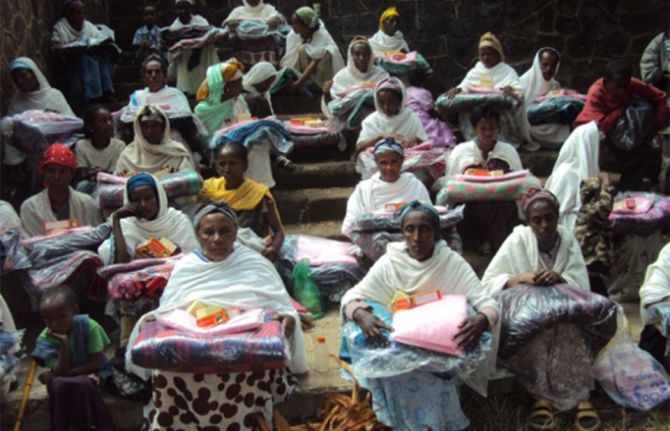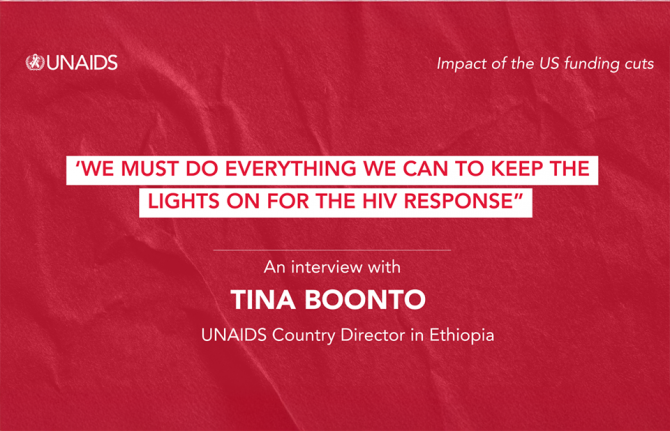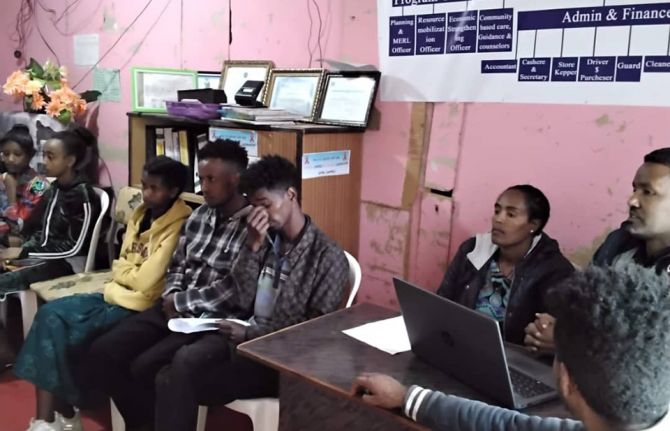

Feature Story
Community workers at the heart of a resilient HIV response in Ethiopia
04 August 2025
04 August 2025 04 August 2025This story first appeared in the UNAIDS Global AIDS Update 2025 report.
Amhara in northern Ethiopia is a region with a rich cultural history. The birthplace of the national language, Amharic, it is home to ancient churches such as the UNESCO World Heritage Site of Lalibela. In April 2023, the region was plunged into crisis when internal armed conflict erupted. The consequences were devastating.
Thousands of people were displaced, gender-based violence surged, essential services such as health and education were disrupted, and travel between cities became almost impossible.
As formal systems broke down, local community-based organizations and drop-in centres in urban areas such as the regional capital Bahir Dar continued to monitor the situation on the ground and provide vital services. These organizations became lifelines for people living with HIV, people from key populations and young people.
This changed in February 2025. Cuts in United States funding disrupted essential services. Many community-run organizations that relied on those funds were forced to close. Outreach workers who had built trust with people on their doorsteps were suddenly laid off. Peer support groups vanished. Fear took hold.
“I often find myself overwhelmed with stress,” says a member of one women-led association of people living with HIV. “If medicine and other services stop, where will I go? I simply do not have the means to afford the treatment I need.”
The data collected by the association paint a stark picture. For two months, no new clients have been enrolled in PrEP. “One of my biggest concerns is not having access to condoms,” says a case manager. “Without them, HIV will spread much more easily.”
She adds, “Without a financial budget, our members are left without the basics, no food, medical care, transportation, no hope. They have families. They rely heavily on this support. It would make a huge difference if members could access free medical treatment and hospital services. Many cannot even afford one meal a day. Their health is deteriorating. Their children are suffering. What they need most is dignity, food and a fighting chance.”
Yet even when faced with collapse, communities refused to give up. Young volunteers formed informal networks and WhatsApp groups to check on peers and stay connected. Mothers banded together to support children’s treatment. Youth collectives used community radio and shared airtime to spread critical health information.
Where formal systems failed, communities built their own safety nets.
The situation in Bahir Dar was a wake-up call. It exposed the fragility of systems dependent on a single funding source.
This crisis shows that resilience must be built into HIV responses from the start. Community-led and youth-driven responses must be recognized, resourced and scaled up. UNAIDS is providing support to community organizations to access funding support from local government authorities and private foundations to empower them to continue this important work of community outreach to the most vulnerable populations.
The conflict in the region has shown once again that HIV must feature in humanitarian, development and recovery agendas. The intertwined challenges of conflict, displacement, gender-based violence and HIV demand integrated, person-centred solutions. This will not happen if HIV is treated as an afterthought or is equated only with clinical care and if community-engagement is not recognized and supported.



